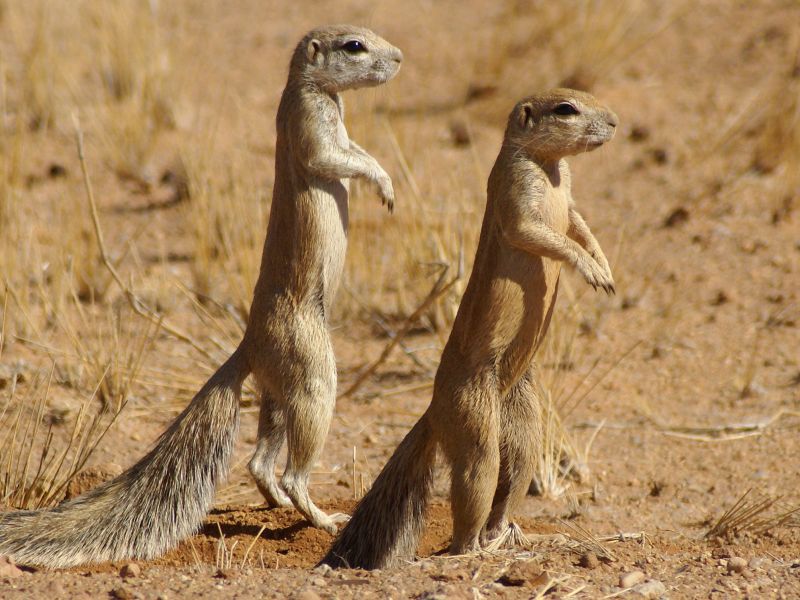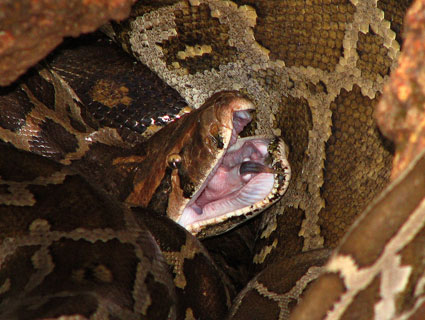There’s a new frontline on the battlefield between the two baddest armies of environmental change—global warming and biodiversity loss. The question is whether or not to relocate endangered species to ecosystems they’ve never inhabited in order to save them from the real or predicted loss of their natural ecosystems from climate change.
RARE from Joel Sartore on Vimeo.
The potential for problems is scary. There’s a term for what happens when species set up house in the wrong ecosystem: biological invasion. One of the primary causes of the current extinction crisis around the world is biological invasion. An exotic species comes in and wipe out a native species. I wrote about this in Listen to the Lionfish in MoJo a couple of years back.
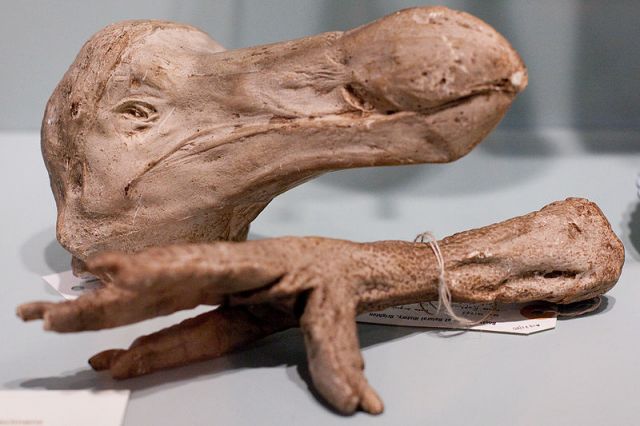 Plaster cast of a dried DoDo bird at the Brighton Museum. The Oxford University Museum of Natural History owns the only remaining Dodo tissue samples. Photo by Ed Schipul, courtesy Wikimedia Commons.
Plaster cast of a dried DoDo bird at the Brighton Museum. The Oxford University Museum of Natural History owns the only remaining Dodo tissue samples. Photo by Ed Schipul, courtesy Wikimedia Commons.
Now a new paper in Ecological Applications by Ben Minteer and James Collins of Arizona State University assesses the pros and cons of managed relocation:
A conservation strategy involving the translocation of species to novel ecosystems in anticipation of range shifts forced by climate change, managed relocation (MR) has divided many ecologists and conservationists, mostly because of concerns about the potential invasion risk of the relocated species in their new environments.
The authors cite an important 2004 paper in Nature, Extinction risk from climate change, which predicts up to 35 percent of Earth’s species could be en route to extinction as a result of climate change. Nevertheless, argue Minteer and Collins, the ways we’ve fought extinction in the past won’t help species teetering on the edge in a rapidly warming climate.
[A]s the plight of the polar bear illustrates, climate change is forcing us to rethink what it means to save a species in the 21st century. If climate change continues unabated and as rapidly as a few models predict, saving at least some species will require solutions more radical than creating parks and shielding endangered species from bullets, bulldozers, and oil spills: It will require moving them.
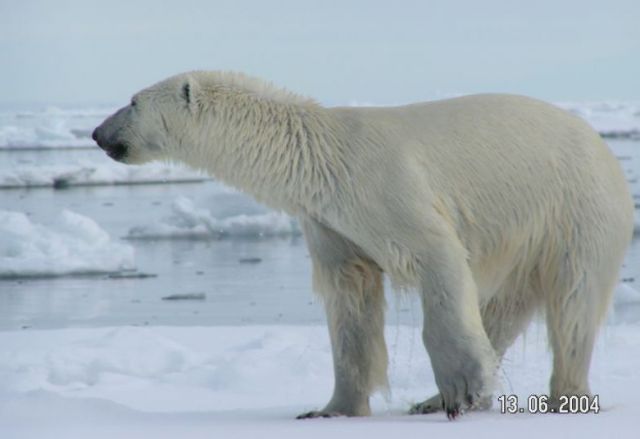 Polar bear. Photo courtesy Wikimedia Commons.
Polar bear. Photo courtesy Wikimedia Commons.
Some key questions raised by Minteer and Collins:
- Is relocation of threatened species justifiable if species can’t adapt quickly enough to local changing environmental conditions, or if dispersing to higher latitudes and altitudes on their own is impossible?
- Would “assisted colonization” help some species cross barriers they can’t or won’t cross—highways or cities, for instance?
- What about the genetic ramifications of relocations—fears of hybridization and introgression, and of messing with the genetics of both introduced and native species?
- What about the genetic outcomes of moving species great distances, as in intercontinental translocations?
- What about the high costs and uncertain success rate of managed relocations, would it divert funds from more traditional conservation approaches?
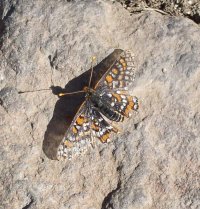 Quino checkerspot butterfly. Photo courtesy the US Fish & Wildlife Service.Whether we’ve though about these issues hard enough or not is becoming moot since relocations are already happening:
Quino checkerspot butterfly. Photo courtesy the US Fish & Wildlife Service.Whether we’ve though about these issues hard enough or not is becoming moot since relocations are already happening:
- The “Torreya Guardians” recently planted the Florida conifer Torreya taxifolia in the unfamiliar soil of North Carolina.
- Forest scientists in British Columbia are moving more than a dozen species of tree seedlings to locations beyond their native range.
- British ecologists introduced two butterfly species in northern England.
- Conservationists in southern California are considering relocating the endangered Quino checkerspot butterfly, whose natural dispersal pathways are blocked by greater Los Angeles.
In the end, argue the authors, the “metabolism of conservation must accelerate if we want to keep up with changes that are outpacing traditional ways of managing species and ecosystems.”
The paper’s open access and worth a read:
- Minteer, Ben A., and James P. Collins. 2010. Move it or lose it? The ecological ethics of relocating species under climate change. Ecological Applications 20:1801–1804. DOI:10.1890/10-0318.1.
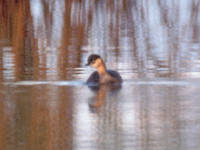 The only known photograph of an Alaotra Grebe, confirmed extinct this year. Photo by Paul Thompson, courtesy Wikimedia Commons.
The only known photograph of an Alaotra Grebe, confirmed extinct this year. Photo by Paul Thompson, courtesy Wikimedia Commons.

